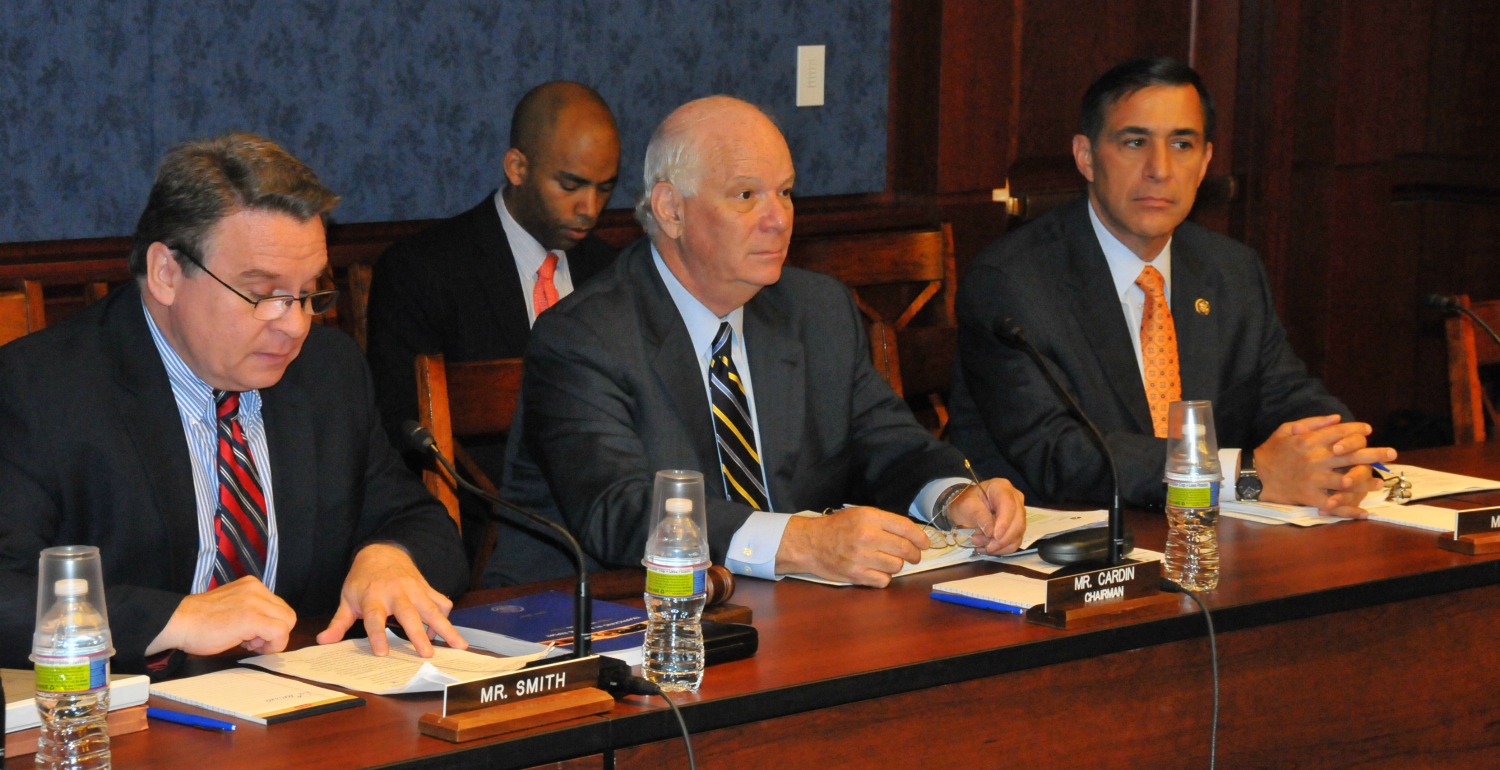Senator Benjamin L. Cardin convened a standing-room only hearing centered on the diplomatic impact of the Trafficking in Persons (TIP) Report. The hearing focused on the ten years that the annual TIP report has been prepared by the State Department. Improvements to TIP-related efforts were suggested, such as working more closely with the Tier 2 Watch List countries in the OSCE Region, – Azerbaijan, Moldova, the Russian Federation, Tajikistan, Turkmenistan, and Uzbekistan – helping them to implement the changes necessary to meet the minimum standards and to avoid statutory downgrades which will otherwise be required in next year’s TIP report.
Witnesses testifying at this hearing – including Luis CdeBaca, Ambassador at Large of the U.S. Department of State Office to Monitor and Combat Trafficking in Persons; Maria Grazia Giammarinaro, Special Representative and Coordinator for Combating Trafficking in Human Beings of the Organization for Security and Cooperation in Europe; Jolene Smith, CEO & Co-Founder of Free the Slaves; and Holly J. Burkhalter, Vice President for Government Relations of the International Justice Mission – explored ways to potentially create extra-territorial jurisdiction for trafficking cases. They also focused on ways to deter demand for trafficking victims in all countries, including Tier 1 countries.








